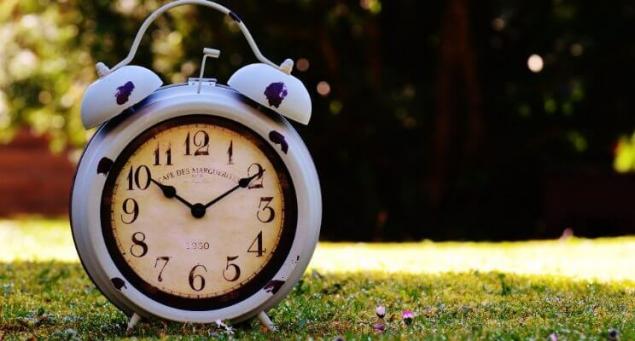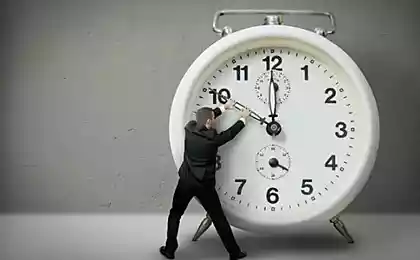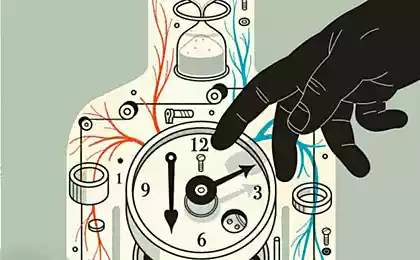389
The Relationship Between Success and Early Awakening: How to Become a Lark
“It is good to get up before dawn, this habit promotes health.”
well-being and wisdom”
aristotle
Are larks born or are they made? In my case, they definitely do. When I was young, I rarely went to bed before midnight and almost always slept for a long time. Normally I only got back to normal by late evening.

But after a while, Even in my own life, I began to notice the relationship between success and early awakening.. On those rare occasions when I woke up early, I noticed that My productivity was almost always higher, not just in the morning, but all day long.. I also felt that I feel much better.. In order to increase activity, I decided to develop a habit of getting up early. The next day I set the alarm for 5 a.m. and...
I got up just before noon. Hmm.
I tried it again and again. Each time, the result has hardly changed. I decided I didn't have the lark gene. Whenever my alarm clock rang, my first thought was always to stop this disgusting noise and go back to sleep. I put the idea of acquiring this habit on hold for a few years, but one day I came across sleep research that revealed to me that I was wrong about the problem. Having taken some ideas from the research, I learned to get up early.
It’s hard to become a lark using the wrong strategy. But with the right algorithm, it's relatively simple.
The most common mistake in the method is this.You assume that if you are going to get up early, it is worth going to bed earlier. You calculate how much sleep you normally get and then just shift your schedule back a few hours. If you usually sleep from midnight to 8am, then to wake up at 6am, you decide to go to bed at 10pm. It sounds logical, but it usually ends in failure.
There are two main theories about sleep patterns.
One of them. You go to bed and wake up at the same time every day. It’s like setting an alarm clock for the beginning and end of sleep. You try to sleep at the same time every night. This is relevant for modern society, since we need to have a predetermined schedule of the day, and we also need to provide ourselves with enough rest.
Second theory He says you You need to listen to your body.. Go to bed when you’re tired and wake up when it’s natural. This judgment is based on knowledge of biology.The body needs to know how much rest we need, so listen to it.
Through trial and error, I’ve determined that both approaches are only half as applicable. None of these are good if you need productivity. Here's why.

The best solution for me was to mix both methods. It’s very simple, and a lot of larks do it without even thinking about it, but it was a revelation to me. The solution was to go to bed when you really want to (and only then), and wake up at the same time (7 days a week). So I always get up at the same time (in my case at 5am), but go to bed differently each time.
I go to bed when I am no longer awake.
If I can’t read more than one or two pages of a book without getting lost, it’s time to go to sleep.
Most often, when I go to bed, I fall asleep in 3 minutes. I lie down, get comfortable, and shut down instantly. Sometimes I go to bed at 21.30, other times I stay up until midnight. I usually go to bed between 10 and 11 p.m. If I’m not sleepy enough, I stay awake until my eyes start to close. Reading is a great activity until I feel I can no longer read.
Every morning, when my alarm goes off, I turn it off, stretch for a few seconds, then sit down. I don't even think about it. I realized that the more time I spent getting up, the more likely I was to try to lie down again. So I don’t allow myself to speculate in my mind that it would be nice to sleep after the alarm goes off. Even if I want to sleep, I always wake up instantly.
After a few days of using this method, I found that my sleep pattern had harmoniously shifted into a natural rhythm. If I got too little sleep one night, the next day I felt drowsy earlier and slept longer that night. If I felt a lot of energy and didn’t get tired, I slept less. My body learned to “turn off” me because it knew I would wake up at a set time anyway, and that that time was out of the question.
The side effect was that I got 90 minutes less sleep a night, but still felt well rested. All the time I was in bed, I spent sleeping.
I believed that most people who suffer from insomnia are those who go to bed when they don’t really need it. If you don’t want to sleep and can’t fall asleep quickly, get up and stay awake for a while. Do not sleep until your body starts producing hormones that shut down your consciousness. If you just go to bed when you want to and wake up at a fixed time, you will be cured of insomnia. The first night you will be awake for a long time, but you will fall asleep instantly. The next day, you may feel tired because you got up too early and slept for only a few hours, but if you suffer a little during the day, you will lie down early the next night. After a few days, you will enter the scheme: go to bed at about the same time, and fall asleep immediately.
So, if you want to start getting up early (or just have better control over your sleep schedule), then try this. Go to bed only when you are no longer awake, and wake up at a set time every day.

I decided to create. step-by-step and clarify some details.
First, to go to bed when you really want to and to do it right. Understanding and common sense must be combined.
If you somehow stimulate yourself before bed, you will be able to stay awake much longer and easily resist drowsiness. In college, I played poker games that lasted until dawn, after which we went to breakfast. I can easily stay awake more than usual if I work, relax with friends, or otherwise stimulate myself.
But that's not what I meant when I said sleepiness. I talked about defining when you can't read a few pages of text without losing concentration. This does not mean that you have to wait until you fall from exhaustion.
A fit of drowsiness, The one I'm talking about starts when your brain starts making hormones to turn you off. This is different from simple fatigue. You feel sleepy. But For this to happen, you need to create the right conditions.. Before going to bed, you need to do nothing for a while. The best way to relax before bed is to read. Some say that it is not the best option to sleep in bed instead of reading. I've never had a problem with that. When I can’t read anymore, I just put the book down and fall asleep. You can read on the chair if you like it better.
Here's another drowsiness test. Ask yourself, “If I go to bed now, how fast will I fall asleep?” If you think it will take more than 15 minutes, stay awake.
Once you’ve chosen the time you’ll wake up, sleep duration doesn’t align immediately. At first, you will notice large fluctuations: waking too long one day, and too short the next. But eventually, you’ll feel when it’s time to go to bed to fall asleep and wake up rested the next morning.
Like a fuse, In order not to sleep too little at first, choose a “border” – the time at which you are guaranteed to go to bed, even if you do not want enough.. For myself, I was able to determine the minimum sleep time I needed. The best option for me is 6.5 hours a night, but I can sleep 5 hours and feel good if I don’t do it every night. The maximum sleep time for me is 7.5 hours. Before I started using this technique, I often slept 8-9 hours, sometimes even 10 hours if I was really tired.
If you use it during the day, caffeineIt can affect your sleep cycles. If you are addicted to caffeine, give up this habit first. Don’t expect natural sleepiness at the right time if you’re chemic your brain.
Once a habit is established, it becomes subconscious. You will be able to engage in active activities, work or play video games, and yet you will know when it is time to sleep. And this can happen every time at different times. A drowsiness test is an important thing when establishing a habit, but after a while the body’s internal signals make it unnecessary.
You can wake up later if you need to. If I don't sleep until three in the morning, I don't set an alarm for 5 a.m. But the next day, I go back to my normal schedule.
I recommend waking up at the same time for 30 days to consolidate the habit, and after that you will get so used to it that it will be difficult to fall asleep again. One day I decided to sleep longer on a Saturday and didn’t set my alarm, but I woke up automatically at 4:58. I tried to fall asleep again, but I failed. Here we go. Once a habit is established, it becomes easy to wake up if you go to bed when you are tired.
If you have children, try to adapt. My children are 1 and 5 years old. Sometimes they wake me up in the middle of the night. My daughter used to show up unexpectedly in the bedroom to tell me and my wife about her dreams, or just talk. And I know what it's like to wake up every few hours. If you are in the same situation, the rule is: sleep when you can. Children don't like to fit into schedules.
If you can’t get out of bed at the sound of an alarm clock, it’s probably because of a lack of self-discipline. If you are disciplined enough, you will stand up anyway. Motivation can also help, but it usually only works for a few days. Discipline is like a muscle. The more you work on it, the more you can count on it. We all have discipline (can you hold your breath?), but not everyone develops it. As your self-discipline develops, challenges like getting out of bed become simple and trivial. But if your self-discipline is weak, it may seem like a heavy obstacle.

Why do you have to get up early?
The main reason I would say is that you have a lot more time to do things that are more interesting than sleep.
Again, I got an extra 10-15 hours a week using this technique. This extra time is really noticeable. At 6.30am, I had already done my exercise, showered, had breakfast and was ready to work. I can spend a lot of time each day doing productive work, which I usually finish by 5pm (and that includes personal "work": checking email, paying bills, picking up my daughter from kindergarten, etc.). This gives me 5-6 personal hours each evening that I can spend on family, leisure, reading, etc. And best of all, I'm still full of energy. Having time for everything that matters to me makes me calm and optimistic.
Think about what you could do in extra time. Even 30 extra minutes a day is enough to do daily exercises, read a book or two a month, blog, meditate, cook a healthy meal, learn to play a musical instrument, etc.
Also interesting: How to learn to get up at 5am
The Power of the Morning: Why Successful People Get Up at 4:00
A little extra time each day in a year turns into huge amounts. 30 minutes a day is 182.5 hours a year. This is more than a month of full-time work (40 hours a week). Double that number if you get 60 extra minutes a day, triple if 90.
I managed to save about 90 minutes a day. It's like getting an extra free year in 10 years. I use that time to do things that I didn’t have the time or energy to do before. That's great. Published.
Credit Steve Pavlina
Source: www.allstevepavlina.ru/how-to-become-an-early-riser
well-being and wisdom”
aristotle
Are larks born or are they made? In my case, they definitely do. When I was young, I rarely went to bed before midnight and almost always slept for a long time. Normally I only got back to normal by late evening.

But after a while, Even in my own life, I began to notice the relationship between success and early awakening.. On those rare occasions when I woke up early, I noticed that My productivity was almost always higher, not just in the morning, but all day long.. I also felt that I feel much better.. In order to increase activity, I decided to develop a habit of getting up early. The next day I set the alarm for 5 a.m. and...
I got up just before noon. Hmm.
I tried it again and again. Each time, the result has hardly changed. I decided I didn't have the lark gene. Whenever my alarm clock rang, my first thought was always to stop this disgusting noise and go back to sleep. I put the idea of acquiring this habit on hold for a few years, but one day I came across sleep research that revealed to me that I was wrong about the problem. Having taken some ideas from the research, I learned to get up early.
It’s hard to become a lark using the wrong strategy. But with the right algorithm, it's relatively simple.
The most common mistake in the method is this.You assume that if you are going to get up early, it is worth going to bed earlier. You calculate how much sleep you normally get and then just shift your schedule back a few hours. If you usually sleep from midnight to 8am, then to wake up at 6am, you decide to go to bed at 10pm. It sounds logical, but it usually ends in failure.
There are two main theories about sleep patterns.
One of them. You go to bed and wake up at the same time every day. It’s like setting an alarm clock for the beginning and end of sleep. You try to sleep at the same time every night. This is relevant for modern society, since we need to have a predetermined schedule of the day, and we also need to provide ourselves with enough rest.
Second theory He says you You need to listen to your body.. Go to bed when you’re tired and wake up when it’s natural. This judgment is based on knowledge of biology.The body needs to know how much rest we need, so listen to it.
Through trial and error, I’ve determined that both approaches are only half as applicable. None of these are good if you need productivity. Here's why.
- If you lie down and get up at a fixed time, Sometimes you have to go to bed when you don’t have a physical need. If you need more than five minutes to fall asleep, you don’t want enough sleep. You are wasting your time in bed. Another problem is that you assume you need the same number of hours of sleep each day, but that’s wrong. Sleep duration should vary from day to day.
- If your dream is based on what your body tells you, You will probably sleep more than you need. And in most cases – much more, about 10-15 hours a week (that is, sleep will take almost as much time as waking). Many people who regulate their sleep this way sleep more than eight hours a night. It's usually too much. In addition, each morning will be less predictable if you wake up at different times. Also, due to a mismatch between your biological rhythms and your 24-hour day, you may notice a shift in your sleep periods.

The best solution for me was to mix both methods. It’s very simple, and a lot of larks do it without even thinking about it, but it was a revelation to me. The solution was to go to bed when you really want to (and only then), and wake up at the same time (7 days a week). So I always get up at the same time (in my case at 5am), but go to bed differently each time.
I go to bed when I am no longer awake.
If I can’t read more than one or two pages of a book without getting lost, it’s time to go to sleep.
Most often, when I go to bed, I fall asleep in 3 minutes. I lie down, get comfortable, and shut down instantly. Sometimes I go to bed at 21.30, other times I stay up until midnight. I usually go to bed between 10 and 11 p.m. If I’m not sleepy enough, I stay awake until my eyes start to close. Reading is a great activity until I feel I can no longer read.
Every morning, when my alarm goes off, I turn it off, stretch for a few seconds, then sit down. I don't even think about it. I realized that the more time I spent getting up, the more likely I was to try to lie down again. So I don’t allow myself to speculate in my mind that it would be nice to sleep after the alarm goes off. Even if I want to sleep, I always wake up instantly.
After a few days of using this method, I found that my sleep pattern had harmoniously shifted into a natural rhythm. If I got too little sleep one night, the next day I felt drowsy earlier and slept longer that night. If I felt a lot of energy and didn’t get tired, I slept less. My body learned to “turn off” me because it knew I would wake up at a set time anyway, and that that time was out of the question.
The side effect was that I got 90 minutes less sleep a night, but still felt well rested. All the time I was in bed, I spent sleeping.
I believed that most people who suffer from insomnia are those who go to bed when they don’t really need it. If you don’t want to sleep and can’t fall asleep quickly, get up and stay awake for a while. Do not sleep until your body starts producing hormones that shut down your consciousness. If you just go to bed when you want to and wake up at a fixed time, you will be cured of insomnia. The first night you will be awake for a long time, but you will fall asleep instantly. The next day, you may feel tired because you got up too early and slept for only a few hours, but if you suffer a little during the day, you will lie down early the next night. After a few days, you will enter the scheme: go to bed at about the same time, and fall asleep immediately.
So, if you want to start getting up early (or just have better control over your sleep schedule), then try this. Go to bed only when you are no longer awake, and wake up at a set time every day.

I decided to create. step-by-step and clarify some details.
First, to go to bed when you really want to and to do it right. Understanding and common sense must be combined.
If you somehow stimulate yourself before bed, you will be able to stay awake much longer and easily resist drowsiness. In college, I played poker games that lasted until dawn, after which we went to breakfast. I can easily stay awake more than usual if I work, relax with friends, or otherwise stimulate myself.
But that's not what I meant when I said sleepiness. I talked about defining when you can't read a few pages of text without losing concentration. This does not mean that you have to wait until you fall from exhaustion.
A fit of drowsiness, The one I'm talking about starts when your brain starts making hormones to turn you off. This is different from simple fatigue. You feel sleepy. But For this to happen, you need to create the right conditions.. Before going to bed, you need to do nothing for a while. The best way to relax before bed is to read. Some say that it is not the best option to sleep in bed instead of reading. I've never had a problem with that. When I can’t read anymore, I just put the book down and fall asleep. You can read on the chair if you like it better.
Here's another drowsiness test. Ask yourself, “If I go to bed now, how fast will I fall asleep?” If you think it will take more than 15 minutes, stay awake.
Once you’ve chosen the time you’ll wake up, sleep duration doesn’t align immediately. At first, you will notice large fluctuations: waking too long one day, and too short the next. But eventually, you’ll feel when it’s time to go to bed to fall asleep and wake up rested the next morning.
Like a fuse, In order not to sleep too little at first, choose a “border” – the time at which you are guaranteed to go to bed, even if you do not want enough.. For myself, I was able to determine the minimum sleep time I needed. The best option for me is 6.5 hours a night, but I can sleep 5 hours and feel good if I don’t do it every night. The maximum sleep time for me is 7.5 hours. Before I started using this technique, I often slept 8-9 hours, sometimes even 10 hours if I was really tired.
If you use it during the day, caffeineIt can affect your sleep cycles. If you are addicted to caffeine, give up this habit first. Don’t expect natural sleepiness at the right time if you’re chemic your brain.
Once a habit is established, it becomes subconscious. You will be able to engage in active activities, work or play video games, and yet you will know when it is time to sleep. And this can happen every time at different times. A drowsiness test is an important thing when establishing a habit, but after a while the body’s internal signals make it unnecessary.
You can wake up later if you need to. If I don't sleep until three in the morning, I don't set an alarm for 5 a.m. But the next day, I go back to my normal schedule.
I recommend waking up at the same time for 30 days to consolidate the habit, and after that you will get so used to it that it will be difficult to fall asleep again. One day I decided to sleep longer on a Saturday and didn’t set my alarm, but I woke up automatically at 4:58. I tried to fall asleep again, but I failed. Here we go. Once a habit is established, it becomes easy to wake up if you go to bed when you are tired.
If you have children, try to adapt. My children are 1 and 5 years old. Sometimes they wake me up in the middle of the night. My daughter used to show up unexpectedly in the bedroom to tell me and my wife about her dreams, or just talk. And I know what it's like to wake up every few hours. If you are in the same situation, the rule is: sleep when you can. Children don't like to fit into schedules.
If you can’t get out of bed at the sound of an alarm clock, it’s probably because of a lack of self-discipline. If you are disciplined enough, you will stand up anyway. Motivation can also help, but it usually only works for a few days. Discipline is like a muscle. The more you work on it, the more you can count on it. We all have discipline (can you hold your breath?), but not everyone develops it. As your self-discipline develops, challenges like getting out of bed become simple and trivial. But if your self-discipline is weak, it may seem like a heavy obstacle.

Why do you have to get up early?
The main reason I would say is that you have a lot more time to do things that are more interesting than sleep.
Again, I got an extra 10-15 hours a week using this technique. This extra time is really noticeable. At 6.30am, I had already done my exercise, showered, had breakfast and was ready to work. I can spend a lot of time each day doing productive work, which I usually finish by 5pm (and that includes personal "work": checking email, paying bills, picking up my daughter from kindergarten, etc.). This gives me 5-6 personal hours each evening that I can spend on family, leisure, reading, etc. And best of all, I'm still full of energy. Having time for everything that matters to me makes me calm and optimistic.
Think about what you could do in extra time. Even 30 extra minutes a day is enough to do daily exercises, read a book or two a month, blog, meditate, cook a healthy meal, learn to play a musical instrument, etc.
Also interesting: How to learn to get up at 5am
The Power of the Morning: Why Successful People Get Up at 4:00
A little extra time each day in a year turns into huge amounts. 30 minutes a day is 182.5 hours a year. This is more than a month of full-time work (40 hours a week). Double that number if you get 60 extra minutes a day, triple if 90.
I managed to save about 90 minutes a day. It's like getting an extra free year in 10 years. I use that time to do things that I didn’t have the time or energy to do before. That's great. Published.
Credit Steve Pavlina
Source: www.allstevepavlina.ru/how-to-become-an-early-riser
How to cook the Marseille Bouillabaisse soup
The relationship between success and an early awakening: how to become a lark























